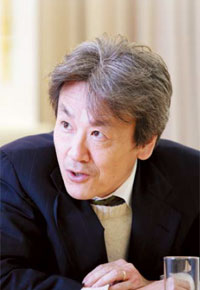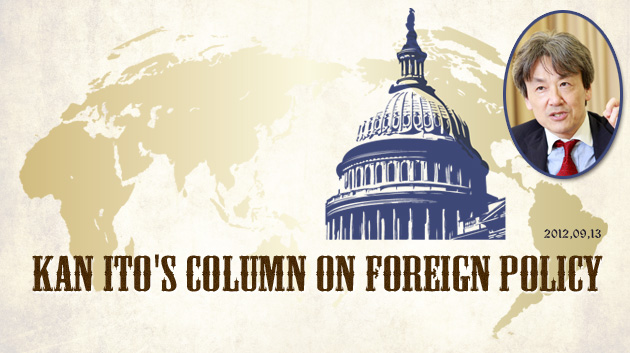Putin Adopts a Balance of Power Policy
(This article is one of the Mr. Ito’s series of columns; He is a contributing author to The Liberty Magazine.)
International politics cannot escape the balance of power. America’s decline, China’s rise, North Korea’s nuclear armament. Japan’s position is certainly leaning unfavorably. How should Japan independently interpret the international situation in order to create a new power balance?
Putin adopts a balance of power policy, which was often taken by major powers during the 17th-19th century. (It was a major rule during the 17th-19th century.)

Kan Ito
Born in 1953, Kan Ito is an international politics analyst. He graduated from the Faculty of Economics at the University of Tokyo and studied American political history and international relations at Cornell University before working as an international politics and financial analyst at a business consultancy firm. His works include Chugoku no Kakusenryoku ni Nihon ha Kuppuku suru [Japan’s Submission to China’s Nuclear Capability], published by Shogakukan, and Jimetsu suru Amerika Teikoku [The Self-destruction of the American Empire], published by Bunshun Shinsho.
—–Prime Minister Medvedev visited the four northern islands again, maintaining that it was Russian territory and he would not give an inch to Japan.
It is appropriate to analyze this issue looking at the big picture. There is no point debating the minor point of whether it is Medvedev or Putin that is anti-Japan.
Twenty years ago, a debate raged in the American diplomatic press over whether the post-Cold War international structure would become unipolar, centering on America, or whether it would return to being multipolar like it was in the 18th-19th century. Those claiming that it would become unipolar included Harvard University’s Joseph Nye, Francis Fukuyama, author of The End of History, and former Secretaries of State Albright and Rice. The U.S.
Department of State and Pentagon also adopted the unipolarism stance.
On the other hand, those who claimed that a multipolarism in the international structure was inevitable and that the international politics of the 21st century would return to a balance of power diplomacy under a multipolar structure like that of the 18th-19th century included former Secretary of State Kissinger, Huntington, author of The Clash of Civilizations, a leading theorist in international politics Kenneth Waltz (University of California), and George Kennan, the strategist who devised the strategy to contain the Soviet Union and the Marshall Plan. They asserted that a unipolar structure, whereby America only controlled the world, was impossible.
America subsequently failed in wars in Iraq, Afghanistan, and Pakistan, and neglected China’s great military expansion, and North Korea’s increased production of nuclear warheads. It also tried to expand NATO to the East and form a cordon around Russia, aggravating U.S.-Russia relations. It was clear that the international structure had advanced in the direction of multipolarization. In other words, Kennan and Kissinger’s strategic judgments were correct, and those of the U.S. Department of State and the Pentagon were not.
Related
- President Putin and the Future of Russia─An Interview with the Guardian Spirit of Vladimir Putin─
President Putin is highly regarded for his performance. He revived a “strong Russia,” by managing to subdue the economic and political turmoil, and by increasing the GDP growth by five times during his previous presidential term that continued for 8 years. …



















